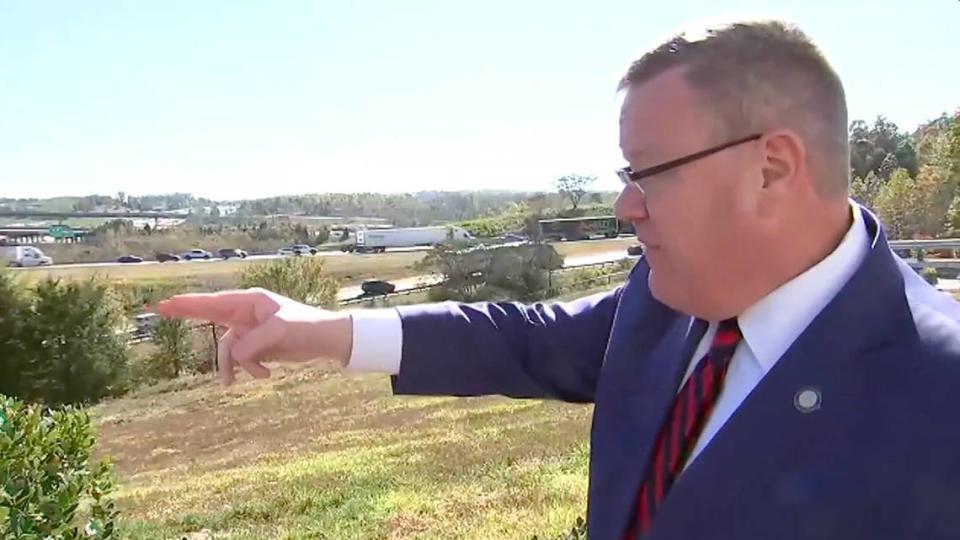Five things to know about investigation into NC legislature spending, Tim Moore’s $45M
As Republicans in the state legislature continue to hold firm majorities in both chambers, they have grabbed more power while making it harder to track what they are doing.
These two trends are resulting in state budgets laced with spending and meaty policy changes that often show up at with scarce time for public review or debate, News & Observer reporting shows.
The first installment of our ongoing Power & Secrecy investigation focused on the state budget. Here are five things the reporting uncovered:
Big money helps a congressional run
Last year, state budget writers added $100 million to a contingency account for transportation projects that critics have long complained is a slush fund.

For many years that fund, which is split between the House speaker, Senate leader and NCDOT secretary, spent roughly $10 million annually. Legislative leaders typically spent their shares in their districts and on projects requested by favored lawmakers.
That continued last year, too, but in a big way.
A month after the budget passed, House Speaker Tim Moore, a Cleveland County Republican, took nearly half of the $100 million and committed it to an interstate interchange that is a major gateway to the newly-redistricted 14th Congressional District.
Hours after Moore led a press conference announcing the spending, his campaign confirmed he was running for that seat.
Budgets built behind closed doors
Twice over the past six years, House and Senate leaders didn’t produce their own budget proposals. They inserted budget bills with roughly $30 billion in spending and new policy into unrelated bills already passed in each chamber. That eliminated the opportunity for debate or amendments.
In one of those budgets, legislative leaders took the rare step in 2022 of providing $6 million to a private company attempting to develop a light-based device to combat COVID-19. EmitBio has connections to House Speaker Moore.
Its parent company, KNOW Bio, paid Moore for legal work in 2017, four years after he had helped the company’s founder, Neal Hunter, with state legislation that kept 751 South — a major mixed use development in South Durham that included him as a partner — on track. Hunter and Moore have other financial ties.

Last year, state lawmakers gave EmitBio another $20 million in the state budget, funding proposed first in a House budget bill.
Lawmakers locking up records
State lawmakers have downplayed a provision added to last year’s state budget that exempts them from the public records law, saying it would have little impact on record requests. But when The N&O sought records regarding the EmitBio spending, only two documents were provided.

One was Rep. Jason Saine’s request to the state budget office to put the spending on hold; the other was a letter from Moore’s chief of staff eight days later that said Saine and other House budget writers wanted the state funding to continue.
But several questions about the funding remain unanswered that could be answered with records. They include:
How did EmitBio seek the appropriations?
What information did EmitBio provide to convince budget writers to grant the money?
Which budget writers were directly involved with advancing these appropriations?
Budgets block environmental protections
GOP legislators have for years used special provisions in the budget to limit environmental regulators and give themselves increased power over regulations.
This started as soon as Republicans took full control of the legislature in 2011, for the first time in more than a century. Lawmakers tucked into that year’s budget a new version of a rule that said in cases where a federal regulation already exists, state regulations cannot be tougher.

The most recent budget includes at least three examples of the General Assembly stepping in to limit actions that would have protected the environment
The Republican-controlled General Assembly prevented liberal governments in Asheville and Durham from curbing the use of plastic bags and Styrofoam in their jurisdictions. That provision was included in the final version of the budget with no warning, a point at which lawmakers must either vote for or against the whole document.
Other provisions in the 2023 budget prevented North Carolina from enacting rules intended to reduce greenhouse gas emissions from vehicles and power plants.
In one, the General Assembly stymied progress toward a rule that would have required bus and truck manufacturers to steadily increase the number of electric vehicles sold in the state.
In the other, lawmakers forbid North Carolina from joining a cap-and-trade program. Several environmental groups had requested that the state join such a program, and the N.C. Environmental Management Commission had directed environmental regulators to start crafting a rule.
Business groups, most notably the NC Chamber, celebrated the halting of both policies.
It wasn’t always this way
The practice of inserting new policy and spending in the final version of the budget used to be forbidden by the operational rules of the House and Senate.
This rule held in the late 1980s to the mid-2000, until the state Senate, which was then controlled by Democrats, began adding wiggle room in 2003. The House followed suit in 2011, when Republicans began running the legislature.
Ran Coble, retired executive director of the N.C. Center for Public Policy Research, a former nonpartisan watchdog group, recommended that lawmakers make that rule a law.
“This would protect rank-and-file legislators from last-minute surprises that can’t be easily untied from the budget items and other measures that had already been agreed on,” Coble said.
State budgets have grown dramatically in recent years. In 2021 and 2023 they exceeded 600 pages. An N&O review of budgets going back to 2001 shows only two others exceeded 400 pages, in 2015 and 2017.
This story is one of a series of News & Observer reports called Power & Secrecy. It explores the rise of both in the N.C. General Assembly.


